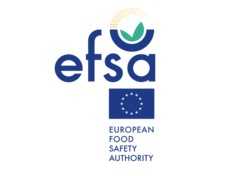Protocol development for EFSA generic scientific assessments
A few hours
Beginner
Course details
Protocols illustrate a priori the aim of the scientific assessment and the methods for carrying it out. EFSA’s 2023 Scientific Committee guidance (GD) on protocol development (PD) describes a flexible framework for PD for EFSA ‘generic mandates’, i.e. those unrelated to regulated products evaluations for market authorisations.
This self-paced training guides through EFSA’s PD framework. It is structured in three modules that consist of an EFSA’s Info session and optional supplementary materials delivered by the Fraunhofer Institute.
Target audience
This course is suitable for all those interested to learn how to develop a protocol for a scientific assessment in food and feed safety and not necessarily only for the purpose of an EFSA’s assessment.
Although EFSA’s framework for protocol development was conceived for ‘generic mandates’, the training can also be useful for planning an assessment of regulated products, when the relevant scientific and regulatory framework does not fully detail the data requirements and/or the methods for collecting, analysing, and synthesising data.
The course is suitable for all types of knowledge in food and feed safety scientific assessments and protocol development: beginner, intermediate, proficient, expert.
Learning objectives
At the end of the training, participants will have a clear understanding of the phases of the scientific assessment process at EFSA, the importance of protocol development and the need for flexibility in EFSA’s protocols to produce fit for purpose scientific advice.
Participants will also become familiar with the two main steps in PD:
- Step 1: Problem formulation, which illustrates the objectives of the assessment. Here participants will learn a new approach for (sub-)question formulation called the ‘APRIO’ paradigm (Agent, Pathway, Receptor, Intervention, and Output).
- Step 2: Specification of the evidence needs and the methods for answering the assessment (sub-) questions, including uncertainty analysis.
EFSA is an agency of the European Union set up in 2002 to serve as an impartial source of scientific advice to risk managers and to communicate on risks associated with the food chain.

Schedule
- Welcome
- Module 1 - Introduction
- Module 2 - Problem formulation (step 1 in PD)
- Module 3 - Methods’ specification (step 2 in PD)



